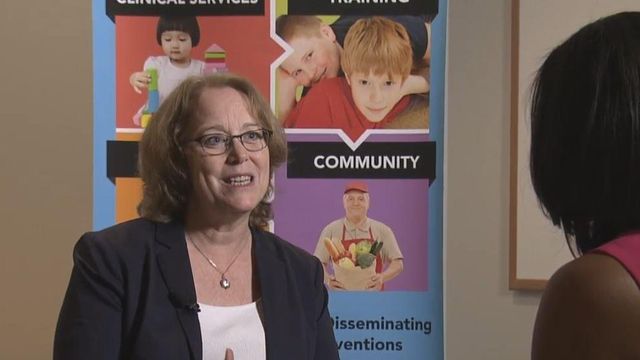UNC professor talks about her role in Sesame Street's muppet with autism
UNC psychiatry professor Dr. Laura Klinger was brought on the Sesame Street advisory panel 5 years ago to help develop the character.
Posted — UpdatedUniversity of North Carolina at Chapel Hill psychiatry professor Dr. Laura Klinger was brought on the "Sesame Street" advisory panel 5 years ago to help develop the character. The panel was made up of researchers, clinicians, family members and people with autism.
“'Sesame Street' has really used Julia as a way to raise awareness about autism and also to help other kids know how to interact with somebody who has autism,” she said.
Klinger is the executive director of the university's TEACCH Autism program, a community-based program helps people of all ages on the autism spectrum and their families cope with the disorder.
She played a key role in Julia's character development.
"I love Julia. I was a little worried about how it was going to come across on the show," Klinger said. "But I was so impressed to see how that episode played out."
Klinger said it took years to carefully craft Julia's personality and character traits.
"Sometimes people with autism might do things that might seem confusing to you," she said.
"We helped them think about what features that Julia should have on the show, looking at some of their early scripts and giving them feedback about what a 4-year-old with autism might or might not do."
David Laxton, a spokesperson for the Autism Society of North Carolina said the organization feels "Sesame Street" accurately and tactfully features the autism community.
"Julia responds to things differently than Big Bird does, and PBS takes the time to explain why," Laxton said.
Klinger said characterizing a disorder with such a range of behavior was a challenge.
"One character cannot represent the entire spectrum," she said.
But with the sharp rise in autism rates, she said a form of representation was needed.
According to the Centers for Disease Control and Prevention, 1 in 58 children in North Carolina are on the spectrum. Klinger said early detection can be life-changing for families
"A family watching that character might say – oh, that's like my child," Klinger said.
And Laxton said educating people without autism is just as important.
"It leads to positive, constructive dialogue," Laxton said. "We're not only promoting awareness, we're promoting acceptance. It's breaking down barriers."
• Credits
Copyright 2024 by Capitol Broadcasting Company. All rights reserved. This material may not be published, broadcast, rewritten or redistributed.






